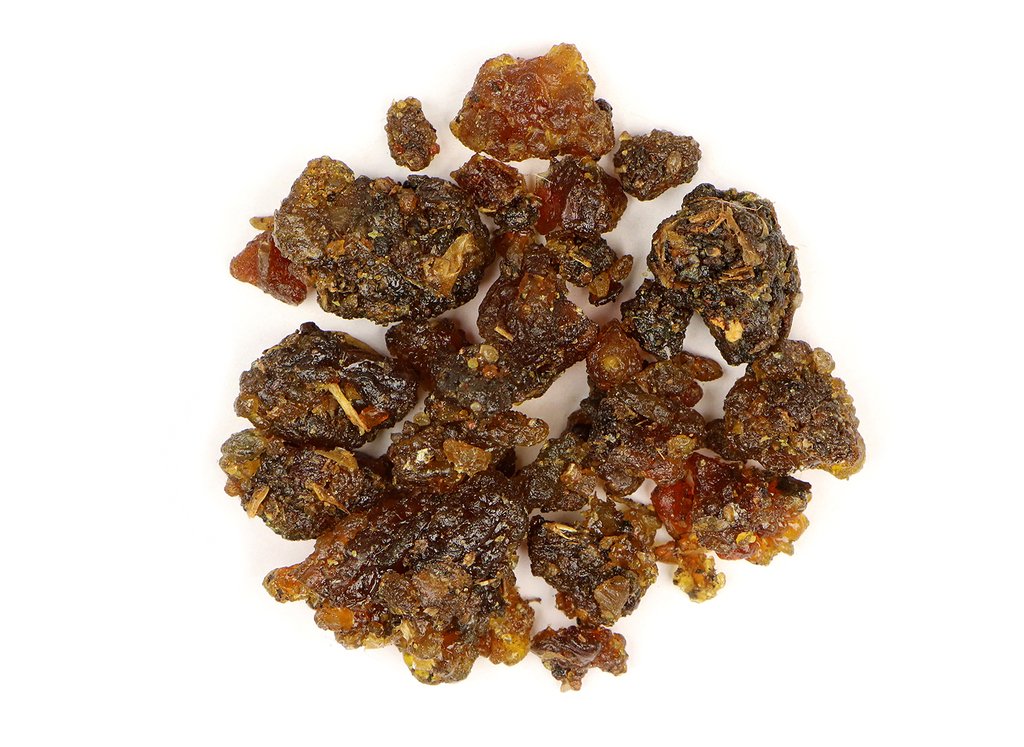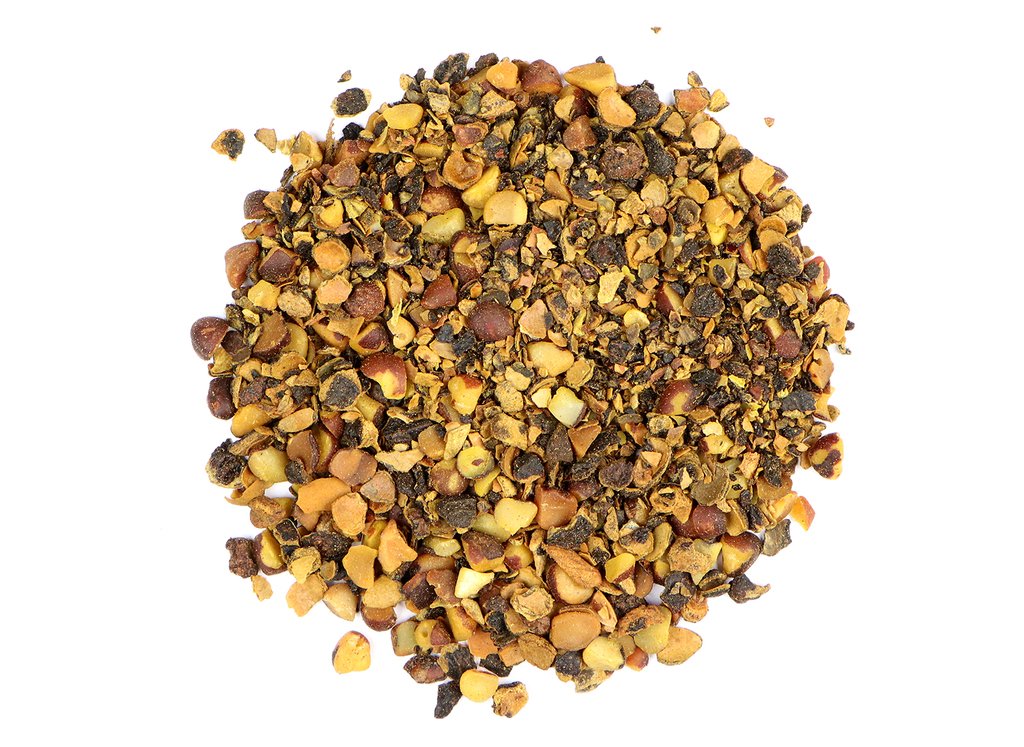 Image 1 of
Image 1 of


Cloves Whole
Botanical Name: Syzygium aromaticum
Origin: India
Botanical Name: Syzygium aromaticum
Origin: India
Botanical Name: Syzygium aromaticum
Origin: India
Native to the Moluccas in Indonesia, Syzygium aromaticum is a highly aromatic tree that produces fragrant flower buds known as cloves. Cloves are widely cultivated throughout parts of Asia, Africa, and South America, and have been an integral herb in the spice trade for thousands of years. Clove remains a popular ingredient in baking, mulled wine, chai tea, and herbal formulations. Stimulating and aromatic, whole cloves are used in savory dishes in Middle Eastern, north African, Chinese, and Indian cuisines.
An extensively utilized culinary spice since ancient times, clove rivals other well-known spices such as cinnamon, ginger, and nutmeg for popularity. Clove is used in liqueurs and mulled wine, perfumes and even love potions. More recently, clove oil has been employed for its beneficial properties in dentistry.
Clove is a small evergreen tree with smooth gray bark and large, bright green, aromatic and lanceolate shaped leaves. The flowers grow in yellow to bright red clusters at the end of branches. It is in the Myrtaceae family, with relatives ranging from guava to allspice to eucalyptus. The clove of commerce is the pink or reddish flower bud that turns dark brown when dried. The entire tree is highly aromatic and its Latin specific name aromaticum, refers to this intense aroma. The generic name Syzygium is based on the Greek word 'syzygos', that means 'paired or joined' and is in reference to the petals which are joined. The common name 'clove,' a derivative of the Latin 'clavus' meaning 'nail,' and refers to the shape of the clove. Clove is native to the Maluku or Molucca Islands (often referred to as the Spice Islands, due, in part, to the abundance of clove) in Indonesia.
Clove is widely cultivated in Tanzania, Indonesia, Madagascar, Malaysia, Sri Lanka, and South America with Tanzania being the largest commercial cultivator. Zanzibar and the Island of Pemba, both parts of Tanzania, were once represented by a flag with two clove buds representing the influence of this spice in the region.
Clove has been utilized as a culinary spice for thousands of years. It is believed that spice found in a ceramic pot in Syria dating to around 1,700 BCE may have been clove. Also, trade between the Molucca Islands, where the clove grows natively, and China goes back at least to some 2500 years ago. During the Han dynasty, it was customary for court officials to hold cloves in their mouths to freshen their breath while addressing the emperor. Clove was initially brought to Europe in the 4th century by Arab spice traders and by the 16th and 17th centuries, the Portuguese were attempting to hold onto the monopoly that they had on the clove spice trade. However, the Dutch East India Company (referred to in Dutch as the Vereenigde Oostindische Compagnie or 'VOC') gained control in the early 17th century. According to Jack Turner in his book Spice: The History of a Temptation: "After the final expulsion of the Portuguese in 1605, the VOC set about making each and every clove on Earth a Dutch possession." Turner also went on to infer that the Dutch guarded the clove "as ever a jealous lover watched his sweetheart" because apparently there was quite a lot to gain. The markup on clove was nearly 2,000 percent, and further, to maintain such artificially high prices, often hundreds of thousands of pounds of spices were set aflame in huge bonfires. Eventually, a Frenchman named Pierre Poivre, started stealing the highly guarded seedlings and sending them to French colonies in the tropics, making it possible for other countries to grow this crop and, thus, ending the monopoly of the VOC. In the early 1800's the British got involved and began to establish plantations in Tanzania which has grown into the largest clove exporter.
Traditionally, in the Molucca Islands, a clove tree was planted each time a child was born leading to the abundance of this spice. Various folk tales and myths surround clove as it was believed to be imbued with the magical powers of protection, love, and, burned as incense to attract financial abundance. Further, it was thought that burning it as incense would stop others from gossiping about you. Additionally, it was used in exorcisms to expel evil spirits.
Used extensively in Middle Eastern, north African, Chinese (in their '5 spice powder') and Indian cuisine. It is also indispensable in 'chai,' a spicy Indian tea which also contains cardamom, cinnamon, ginger, black peppercorn and black tea and also in garam masala, an Indian culinary spice used in curries, containing turmeric and a variety of other spices. The strong flavor of cloves isn't as appreciated in other countries and is mainly used as a flavoring in various baked goods such as gingerbread. Interestingly, cloves are not used much for cooking in their native homeland of the Molucca Islands, but rather are extremely popular as cigarettes. In Ayurveda (system of traditional healing in India), clove, referred to as 'lavanga,' has not only been used in the kitchen, but has been employed as a medicinal herb to support digestion, soothe nausea, to support lung health, and is thought to be a highly effective carminative. It is considered to be an energetically hot herb having a pungent taste and therefore most useful in cold or stagnant conditions. Likewise, in TCM (Traditional Chinese Medicine), clove is considered a warming herb that breaks up stagnant energy by encouraging chi (energy) flow, and is used to support the kidney, spleen, and stomach meridians.
Cloves are highly aromatic, pungent, and energetically heating. Dried flower buds powdered as a culinary spice or as part of a tea blend.
PRECAUTIONS
Consumption should not exceed small amounts for use as a spice. Consult a qualified healthcare practitioner before using in therapeutic doses. We recommend that you consult with a qualified healthcare practitioner before using herbal products, particularly if you are pregnant, nursing, or on any medications.
This information has not been evaluated by the Food and Drug Administration. This product is not intended to diagnose, treat, cure, or prevent any disease. For educational purposes only.





